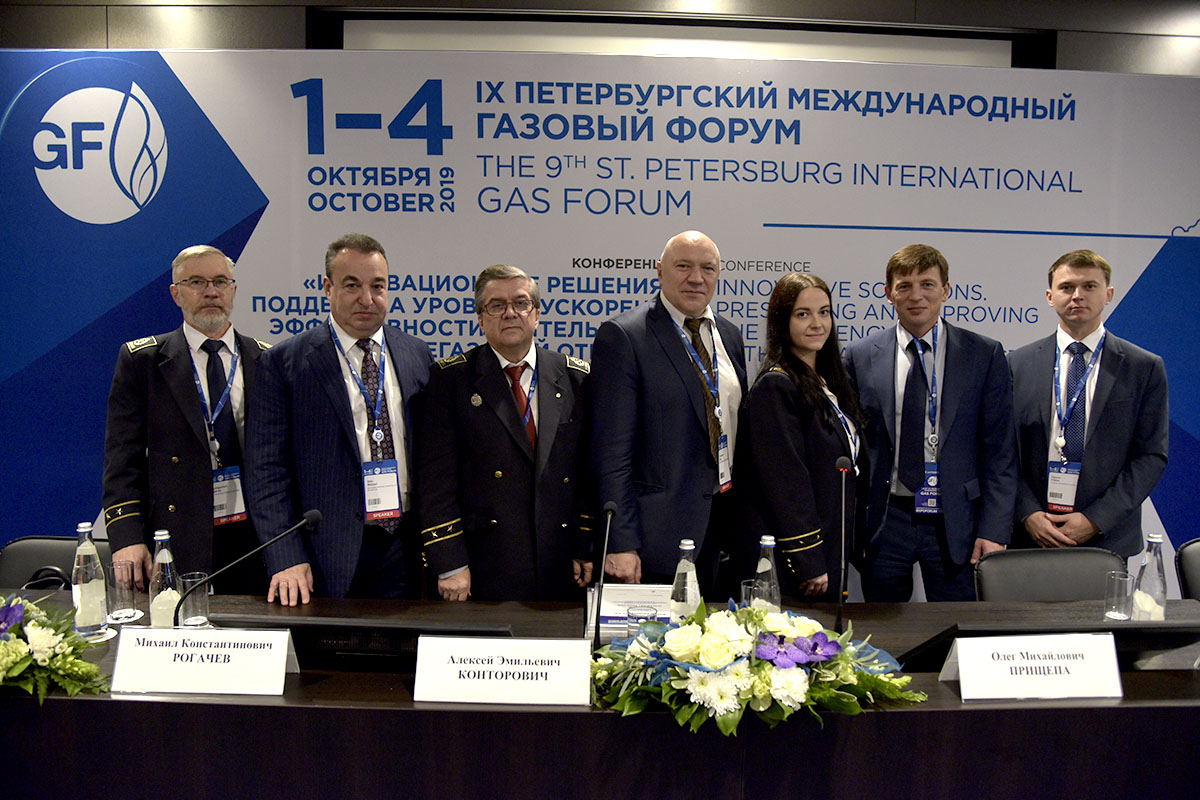"Digital twins" and oil-bearing "water" for the Arctic. Scientific and technical base is being prepared for promising fields
In St. Petersburg, leading representatives of the scientific community presented Russian solutions ensuring the independence and sustainable development of the Russian oil and gas industry.
The main topics of the conference "Innovative Solutions. Preserving and Improving the Efficiency in the Oil and Gas Industry" at the 9th St. Petersburg International Gas Forum, which takes place at ExpoForum Convention and Exhibition Centre, focused on the development of the Arctic in the context of a transition to energy-efficient methods of gas production and utilization, extending the life of fields, as well as the possibility of smart technologies.
"We need to prepare a scientific and technical base in order to start gas production in the Pechora-Barents Sea region in the 30-40s of the 21st century. It will be the largest gas basin. Now it is already necessary to improve gas production and processing technologies, the gas transportation/transmission system in order to use the gas resources to the maximum and minimize losses," – pointed out in his opening speech Alexey Kontorovich, academician of the RAS, scientific director of Trophimuk Institute of Petroleum Geology and Geophysics of the Siberian Branch of the Russian Academy of Sciences (RAS).
The report "Prospects for the further study and development of the hydrocarbon potential of the Arctic shelf of the Pechora-Barents Sea region" was delivered by the Head of the Department of Oil and Gas Geology at St. Petersburg Mining University, Managing Director of the All-Russian Petroleum Research and Development Institute (VNIGRI JSC) Oleg Prischepa. "The potential of complex offshore fields should be connected with the assessment of potential on land ones. We have to make a pope feasibility study on them," - said Oleg Prischepa. The total of hydrocarbon resources of the Arctic zone of Russia today is estimated at more than 250 billion tons.
Oleg Prischepa also gave a scientific assessment of the zones of oil and gas accumulation in the transit and water areas of the northern border of the Timan-Pechora sedimentary basin. "The potential is estimated at 2.3 billion tons of recoverable resources and 11.6 billion tons of fuel equivalnt. But the development prospects are not yet clear," – says the scientist.
With the increasing complexity of the extraction of oil and gas resources, new chemical reagents start to be used that facilitate the extraction of the "hard-to-recover" resource. Scientists say that water-based formulations came to replace hydrocarbon mixtures for the oil industry. The Head of the Department of Development and Operation of Oil and Gas Fields of St. Petersburg Mining University Mikhail Rogachev and the Head of the Department of Field Chemistry of Gubkin Russian State University of Oil and Gas Mikhail Silin told about liquids based on surfactants, enzymes and guar gum.
Yuri Vaganov, Head of the Department of Oil and Gas Well Drilling at the Institute of Geology and Oil and Gas Production of the Tyumen Industrial University, made a presentation on formulations that prolong the life of old fields, helping to produce gas from the most hard-to-recover rock reserves using hydrophobization. Viktor Filatov, Head of the Department of Geology and Field Development of the Rospan Project, Tyumen Oil Research Centre, spoke about the most effective method for extracting condensate from gas condensate deposits today, which is associated with nitrogen injection.
Drilling engineers at Baker Hughes, an American oil and gas equipment company, Ilya Levin and Ilya Grunov demonstrated drilling technology for complex horizontal wells for Novatek PJSC. The engineers showed a next-generation rotary guided system, a special-shaped bit with sensors, which reduced the number of failures when drilling in hard formations, and the first three-column design multilateral well in Western Siberia.
The second block of the conference was dedicated to smart technologies in the oil and gas industry. Representatives of Russian and foreign companies presented "digital twins" of fields for managing facilities over hundreds of kilometers, solutions for remote monitoring of equipment, etc.
The conference was organised by the journal "Scientific Journal of the Russian Gas Society", the Scientific Council of the Russian Academy of Sciences on the problems of geology and development of oil and gas deposits and ExpoForum International. At the end of the event, the organisers – ExpoForum International - awarded participants with honorary diplomas.

 Calendar
Calendar
 Online application
Online application
 Map
Map
 How to get
How to get



